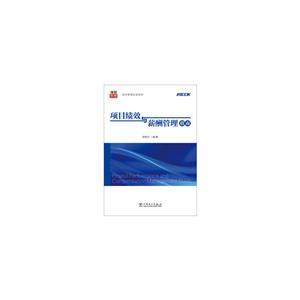空间数据挖掘理论与应用-(第三版)

|
空间数据挖掘理论与应用-(第三版)作者:李德仁 开 本:16开 书号ISBN:9787030599995 定价:99.0 出版时间:2019-06-01 出版社:中国科技出版传媒(原科学) |
空间数据挖掘理论与应用-(第三版) 本书特色
面向大数据,《空间数据挖掘理论与应用(第三版)》提出数据场、云模型、挖掘视角、李德仁法等空间数据挖掘的新方法,揭示在不同层次“规则 例外”的挖掘机理,总结数据源的内容和管理,研究遥感图像的大规模智能检索、地物分类和变化检测,时空分布的视频数据挖掘,夜光遥感图像挖掘,滑坡监测数据挖掘,以及GIS数据的关联规则、分布规则、决策规则和聚类挖掘,成功用于“一带一路”沿线的城市发展评估、国际热点区域的人道主义灾难评估、公共安全事件的监测预警、无人机视频的动态目标跟踪、火车车轮的形变检测、土地利用的分类与变化检测、滑坡监测的数据挖掘、银行选址的预测评估、区域经济分析等领域,研制了空间数据挖掘系统SDMsystem,实现了从空间大数据向大价值的实质转换。
空间数据挖掘理论与应用-(第三版) 目录
目录“地球观测与导航技术丛书”编写说明序一序二序三序四第三版前言第二版前言**版前言第1章 绪论 11.1 空间数据挖掘的由来 11.2 空间数据挖掘的价值 81.3 空间数据挖掘的难题 101.4 本书的内容和组织结构 13第2章 空间数据挖掘基础 162.1 基本定义和性质 162.2 空间数据挖掘金字塔 192.3 空间数据挖掘视角 232.4 空间数据挖掘的知识类型 302.5 空间知识的表达 332.6 空间数据挖掘与相关学科的关系 35第3章 空间数据挖掘的数据源 393.1 空间数据的内容和特性 393.2 空间数据获取 423.3 空间数据结构 443.4 空间数据模型 473.5 空间数据的组织和管理 523.6 国家空间数据基础设施 573.7 中国国家空间数据基础设施 623.8 从空间数据基础设施到大数据 66第4章 空间数据清理 714.1 空间数据的污染问题 714.2 空间数据清理的基本内容 764.3 空间观测数据的清理 784.4 遥感图像的清理 944.5 基于DHP法的空间数据选择 107第5章 空间数据挖掘可用的理论方法 1125.1 确定集合论 1125.2 扩展集合论 1185.3 仿生学方法 1225.4 知识图谱 1275.5 可视化 1275.6 空间数据挖掘系统 128第6章 数据场 1326.1 数据辐射 1326.2 数据场的概念和性质 1356.3 数据场的场强和势 139第7章 云模型 1477.1 随机性和模糊性 1477.2 云模型的概念 1487.3 云模型的类型 1517.4 云发生器 1557.5 云变换 1617.6 基于云模型的不确定推理 163第8章 地学粗空间和概念格 1668.1 地学粗空间的内涵 1668.2 地学粗空间在地球空间信息学的外延 1768.3 概念格及其性质 1788.4 概念格的构建 185第9章 遥感图像智能检索 1969.1 图像检索特征 1969.2 遥感图像统计检索 1999.3 遥感图像深度检索 206第10章 遥感图像分类 21210.1 基于归纳学习和贝叶斯方法的图像分类 21210.2 基于云模型的图像分类 21610.3 基于粗神经网络的图像分类 21810.4 基于地学粗空间的专题提取 219第11章 遥感图像变化检测 22111.1 变化检测的方法体系 22111.2 面向对象机器学习的遥感图像变化检测 22411.3 顾及空间特征的时间序列变化检测 23011.4 面向无人机视频的动态目标跟踪 237第12章 时空分布的视频数据挖掘 24412.1 视频数据智能压缩与云存储 24412.2 基于内容的视频数据检索 24512.3 时空视频数据挖掘 24712.4 视频人脸超分辨率识别与表情挖掘 24912.5 基于长程背景字典的卫星视频编码 262第13章 夜光遥感图像挖掘 26713.1 夜光遥感图像挖掘的必要性 26713.2 中国区域经济分析 26813.3 “一带一路”城市发展评估 27113.4 人道主义灾难评估 274第14章 宝塔滑坡的监测数据挖掘 27914.1 宝塔滑坡 27914.2 滑坡监测数据挖掘的可行性 28014.3 宝塔滑坡形变监测数据挖掘的视角 28314.4 同点异时同向的视角挖掘 28714.5 异点同时同向的视角挖掘 29314.6 异点异时同向的视角挖掘 29814.7 基于数据场的例外挖掘 30114.8 宝塔滑坡形变监测的知识及讨论 305第15章 GIS数据挖掘 31115.1 空间关联规则挖掘 31115.2 基于归纳学习挖掘空间分布规则 32015.3 基于粗集发现决策知识 32415.4 空间聚类知识挖掘 331参考文献 342后记 352ContentsForeword on the book seriesForeword IForeword IIForeword IIIForeword IVPreface of the 3rd editionPreface of the 2nd editionPreface of the 1st editionChapter 1 Introduction 11.1 The origin of spatial data mining 11.2 The value from spatial data mining 81.3 Problems in spatial data mining 101.4 Content and organization of the book 13Chapter 2 Principles of Spatial Data Mining 162.1 Fundamental definitions and properties 162.2 Spatial data mining pyramid 192.3 Spatial data mining views 232.4 Knowledge form of spatial data mining 302.5 Representation of spatial knowledge 332.6 Relationship between spatial data mining and related disciplines 35Chapter 3 Data Sources for Spatial Data Mining 393.1 Contents and characteristics of spatial data 393.2 Spatial data acquisition 423.3 Spatial data structure 443.4 Spatial data model 473.5 Organization and management of spatial data 523.6 National Spatial Data Infrastructure 573.7 Chinese National Spatial Data Infrastructure 623.8 From spatial data infrastructure to big data 66Chapter 4 Spatial Data Cleaning 714.1 Pollution of spatial data 714.2 Basic contents of spatial data cleaning 764.3 Cleaning spatial observed data 784.4 Cleaning remote sensing images 944.5 Spatial data selection with DHPmethod 107Chapter 5 Theoretical Methods Available for Spatial Data Mining 1125.1 Crisp set theory 1125.2 Extended set theory 1185.3 Bionics 1225.4 Knowledge Map 1275.5 Visualization 1275.6 Spatial data mining system 128Chapter 6 Data Field 1326.1 Data radiation 1326.2 Concept and nature of the data field 1356.3 Field strength and potential of the data field 139Chapter 7 Cloud Model 1477.1 Randomness and fuzziness 1477.2 Concept of the cloud model 1487.3 Types of cloud model 1517.4 Cloud generator 1557.5 Cloud transformation 1617.6 Uncertain reasoning with cloud model 163Chapter 8 Geo-rough space and conceptual lattice 1668.1 The connotation of geo-rough space 1668.2 Extension of geo-rough space in geoscience 1768.3 Concept lattice and its nature 1788.4 Construction of concept lattice 185Chapter 9 Intelligent Retrieval for Remote Sensing Image 1969.1 Image retrieval features 1969.2 Remote sensing image statistical search 1999.3 Remote sensing image deep retrieval 206Chapter 10 Classification for Remote Sensing Image 21210.1 Image classification based on inductive learning and Bayesian methods 21210.2 Image classification based on cloud model 21610.3 Image classification based on rough neural network 21810.4 Thematic extraction based on geo-rough space 219Chapter 11 Change Detection for Remote Sensing Image 22111.1 Methodology for change detection 22111.2 Image change detection with object-oriented machine learning 22411.3 Sequential change detection und
自然科学 地球科学 测绘学
在线阅读
- 最新内容
- 相关内容
- 网友推荐
- 图文推荐
上一篇:MEMS电子元器伯非线性动力学
下一篇:聚合物材料的空间摩擦学
零零教育社区:论坛热帖子
| [高考] 2022 西安电子科技大学《软件工程》大作业答案 (2022-04-25) |
| [家长教育] 孩子为什么会和父母感情疏离? (2019-07-14) |
| [教师分享] 给远方姐姐的一封信 (2018-11-07) |
| [教师分享] 伸缩门 (2018-11-07) |
| [教师分享] 回家乡 (2018-11-07) |
| [教师分享] 是风味也是人间 (2018-11-07) |
| [教师分享] 一句格言的启示 (2018-11-07) |
| [教师分享] 无规矩不成方圆 (2018-11-07) |
| [教师分享] 第十届全国教育名家论坛有感(二) (2018-11-07) |
| [教师分享] 贪玩的小狗 (2018-11-07) |






